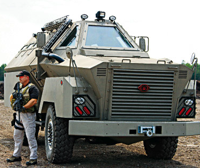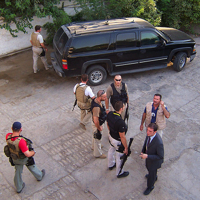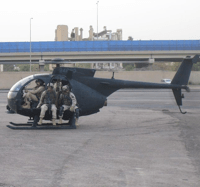Iraq Archive
Free Newsletter
Russian Foreign Minister Sergei Lavrov visited Iraq in May to discuss investments in Iraqi energy projects, among other issues. In an email interview, Marat Terterov, director and principal founder of the European Geopolitical Forum in Brussels, discussed Russia-Iraq relations. WPR: What is the recent history of Iraq-Russia relations? Marat Terterov: Russia, along with France, was one of Iraq’s closer allies during the 1990s, when Baghdad was heavily isolated and subject to U.N. sanctions. Moscow frequently lent diplomatic support to Baghdad during this period, pushing for the lifting of the oil embargo against Iraq and condemning occasional U.S. and U.K. airstrikes […]

Although the United States has been using private contractors in one way or another since the founding of the country, it is the experience of the past decade, since the Sept. 11 terrorist attacks, that has focused attention on private military and security contractors (PMSCs) to unprecedented levels. The U.S. Defense Department and State Department, as well as other U.S. agencies and other countries, have used contractors in Iraq and Afghanistan both for logistics work, which accounts for the vast majority of contractors, as well as for much more publicized, but numerically far smaller, security roles. As a result, even […]

In the early 1960s, the attempted secession of Katanga, a province in the southern part of today’s Democratic Republic of the Congo in Central Africa, dominated the headlines. The fighting there was perhaps the first expression of a new form of conflict, as it was not a conventional war between states or an independence movement pitting local insurgents against colonial powers, but rather an internal conflict featuring a multitude of nonstate actors. Foreign soldiers and military advisers seconded by Belgium as well as a stream of European mercenaries descended into Katanga. A multinational peacekeeping force deployed to Katanga under a […]

It has been nearly two decades since the international community first focused significant attention on the private military firm as an important actor in conflict. Although quasi-firms and groups of individuals had operated in conflict zones before, a series of high-profile interventions by private military firms in the 1990s served as a watershed moment for the private security industry. In particular, the positive changes to the security environment brought about by private military firms in Angola (1992-1995), Sierra Leone (1995-1999) and Croatia (1994-1996), combined with newfound claims for the firms’ legitimacy as security actors, made the world sit up and […]
